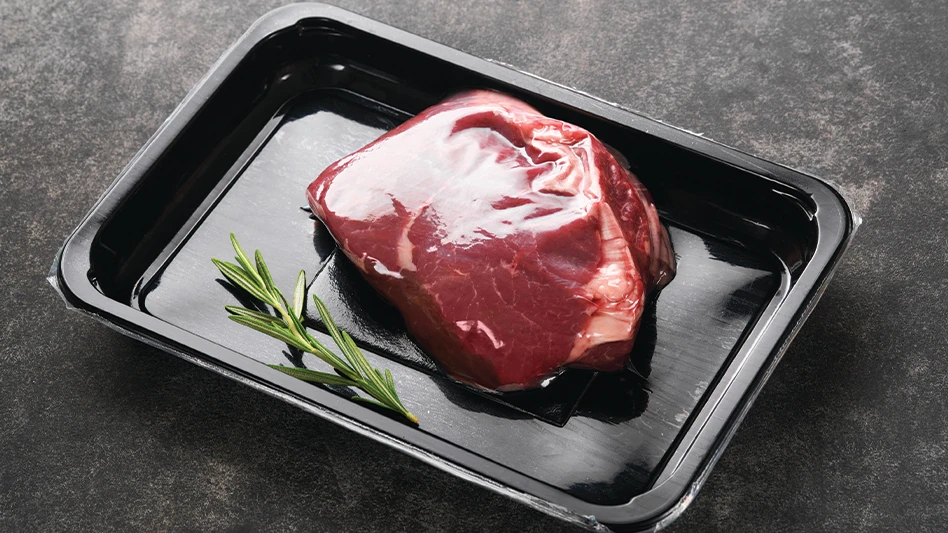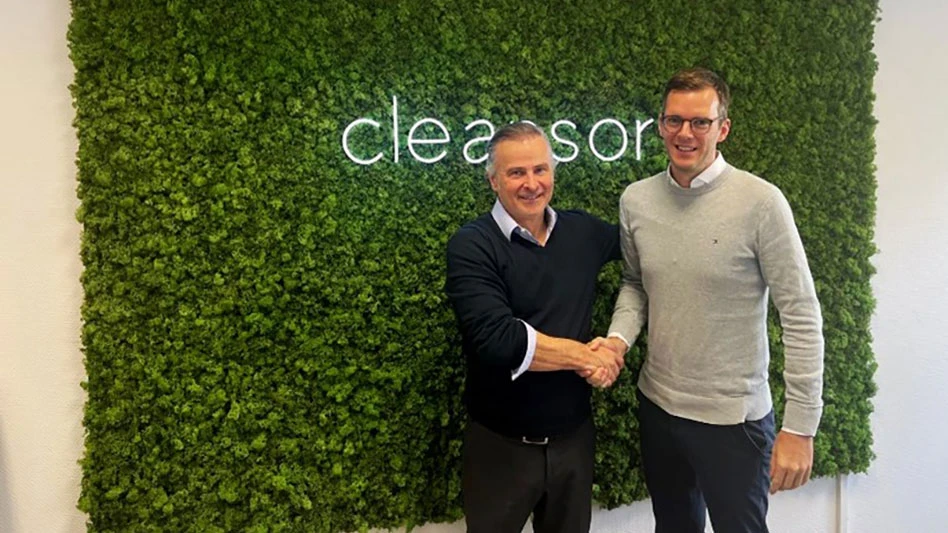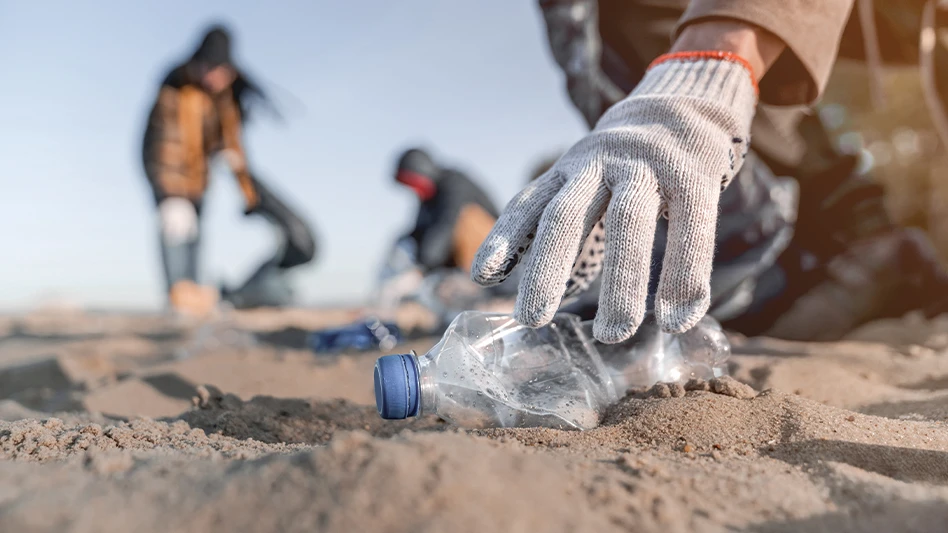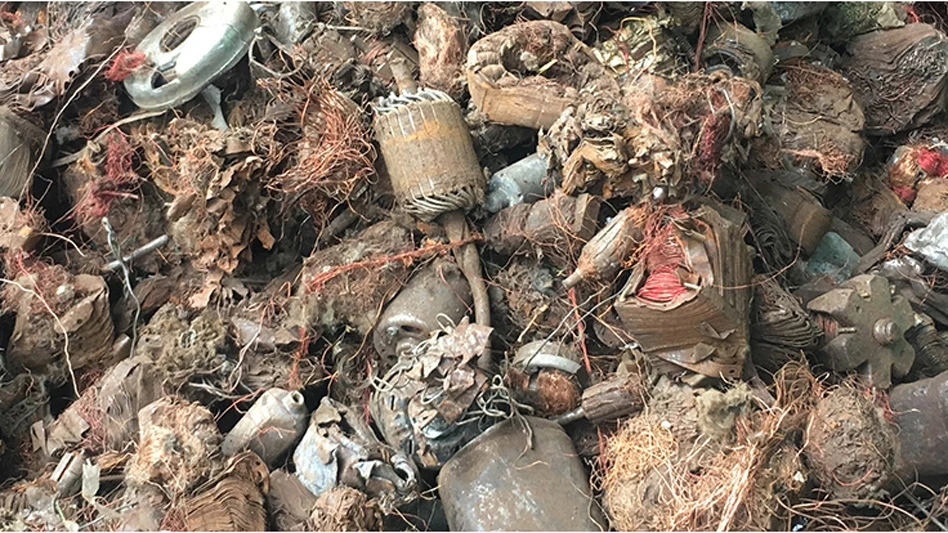
Amid a shifting global recycling market where U.S. recyclers are making investments and optimizing operations, electronics recycling and reuse company Cobalt has installed a shredding system “the length of a football field” at its Middletown, Ohio, facility. The shredding system allows the company to process “labor intensive” end-of-life electronics that traditionally had been sent downstream or shipped overseas for processing.
While Cobalt installed the shredding system because it wanted to offer a solution to safely manage a growing material stream with more risks involved, it also represents strength and growth in the U.S. recycling market two years after the launch of China’s National Sword Policy, which banned or restricted imports of several types of recyclables. The shredding system has allowed Cobalt, a Responsible Recycling Practices (R2) certified recycler, to maximize reuse and recycling of the end-of-life devices it processes.
“From a data security perspective, there’s a lot of risk in where that product is going to end up,” says Bob McCarthy, vice president of business development at Cobalt. “Is it just going to be put on a container and shipped overseas somewhere?”
Cobalt is a subsidiary of Middletown-based Cohen, which is one of the largest ferrous and nonferrous metal recycling companies in North America. At its Middletown facility, Cobalt processes 150,000 pounds of material per day. President Adam Dumes, CEO Joey Fojtik and McCarthy head Cobalt’s operations and had the foresight to install the on-site shredding system in 2016.
Big changes
Prior to installing the shredding system, Cobalt was a recycler that “brought scrap in and manually dismantled products.” In 2016, two big changes happened within the company: the installation of the shredding system and the creation of a refurbishment team. When Cobalt installed its shredding system, the company says it transitioned from being a recycler to being in the risk management business.
“We realized the idea of dismantling wasn’t going to be sustainable,” McCarthy says. “We also knew that for our client base and where we wanted to go as a company, we really wanted to focus on eliminating risk for our clients. The best way to do that is to be able to process material within our four walls.”
He adds, “We want to be a leader and we want to be innovative and find the absolutely best solution for our clients, so they can depend on us to protect their brand and name.”
Cobalt’s shredding system features Pri-Max and Quad shredders manufactured by SSI Shredding Systems Inc., Wilsonville, Oregon, coupled with a high-tech separation system that includes magnets, two eddy currents and optical sorters.
Computers, circuit boards, keyboards and other end-of-life electronics first enter the Pri-Max shredder, where they are reduced to an 8-inch particle size. This material is then fed to the Quad shredder, which produces a 2-inch shred. The magnets extract the steel, and the eddy currents pull out the aluminum, copper and other nonferrous metals.
“We’re a very strong regional player, but we bring in material from all around the country because there’s not many people that can do everything within their four walls,” McCarthy says. “A lot of people have shredders, but you could count how many people can do what we do on two hands.”
When recyclers rely on downstream vendors and the process isn’t audited, there’s a loss of transparency in where end-of-life electronics end up, McCarthy says. In the past, companies have been exposed for improperly disposing of end-of-life electronics and fined for data breaches.
Investing in an on-site shredding system not only gives brands and manufacturers “peace of mind,” McCarthy says, but it also maximizes the recovery and reuse of materials and supplies scrap consumers with “quality packages” of plastics, aluminum, zorba and precious metals.
“At the end of the day, we’re left with a plastic package that contains no metal in it whatsoever,” McCarthy says. “The biggest size is 2 inches. No one can identify it or knows its origins.”
Regarding the metals packages that Cobalt produces, McCarthy says, “It’s a product we can send directly to the smelters for final recovery.”
The year the shredder was installed, Cobalt also created a refurbishment and reuse team that focuses on testing, refurbishing and reselling equipment. The shredding system has allowed Cobalt to move workers from sorting lines to the refurbishment area.
“We created a dedicated wing in our warehouse where we sanitize data,” McCarthy says. “They’re testing and refurbishing product, so we can maximize revenue for that product back to our client. Reuse is the best form of recycling.”
He adds, “Not only did we recognize we have to be experts in end-of-life management, we need to be experts on reuse. It’s not just shredding. That’s a piece of what we do, but it’s that whole risk management piece that’s what Cobalt is.”
Selecting its system
With all of Cohen’s scrap locations in Ohio, Indiana, Kentucky and Tennessee, the company was already familiar SSI Shredding Systems, McCarthy explains. Cobalt worked with a consultant to install what McCarthy calls “the best” shredding system in the industry.
“The Cohen family invested heavily in this system,” he says. “The reason we went high-end on everything is because it doesn’t break down. If you have downtime, that’s a killer.”
He adds, “Our clients like to know they’re aligned with someone who is serious about what they do.”
“We really wanted to focus on eliminating risk for our clients. The best way to do that is to be able to process material within our four walls.” – Bob McCarthy, vice president, business development, at Cobalt
Since installing the shredding system and downstream sorting equipment, Cobalt has been refining and fine-tuning the system to maximize material recovery.
“It takes two years to fine-tune your own equipment,” McCarthy says, adding that the company has worked with consultants to ensure it is maximizing output.
He continues, “A lot of it is teaching ourselves the best setting to run cable boxes on,” for example, “as it goes across the sorter or eddy current system.”
In the beginning of 2019, Cobalt added optical sorters manufactured by Germany-based Tomra Sorting Recycling to clean up the metal packages destined for smelters. It also installed a state-of-the-art fire suppression system.
“Everything we’ve seen with China’s National Sword and exporting, it’s unbelievably critical that you have good quality packages,” McCarthy says. “Smelters are demanding even better packages. We want to create the best quality packages possible, which in turn allows us to get better terms with the smelters. They’re willing to pay us more because our packages are so good. That’s one of the key reasons we invested in the optical sorters.”
Forging new partnerships
The shredding system also has led to new relationships and partnerships, including a new collaboration with Sunnyvale, California-based Trimble, a company that integrates a wide range of positioning technologies, including GPS, laser, optical and inertial technologies, with application software, wireless communications and services. Through the partnership, Trimble customers upgrading to new devices in 2019 and 2020 will be able to ship their old onboard electronic equipment to Cobalt through a free takeback program for safe and secure disposal of the hardware.
With brands and companies publicly making sustainability commitments and seeking secure disposal and recycling within the U.S., Cobalt says its shredding system will foster more partnerships.
“Their product—a computer encased with aluminum and a circuit board inside—screamed export,” McCarthy says of the Trimble devices. “The security of knowing it’s all being handled here was huge. They know exactly what’s going to happen to their aluminum. They know exactly what’s going to happen to their circuit board material.”
He adds, “They have a peace of mind. You see this company getting fined or that company just ended up on the news. Everybody thinks it won’t happen to us. These guys know nothing is going to happen by the time it gets through Cobalt.”

Explore the June 2019 Issue
Check out more from this issue and find your next story to read.
Latest from Recycling Today
- Call2Recycle strengthens partnership with Brockville, Ontario
- Symphony Environmental launches biodegradable resin for plastics industry
- Updated: Saica exploring recycled paper mill project in Dayton, Ohio, report says
- Reju, NFT working together on textile circularity in France
- Iondrive raises $6M for battery recycling pilot plant, commercialization efforts
- Steel output in US remains off 2023 pace
- Tata Motors opens auto dismantling facility in India
- Rio Tinto incorporates recycled aluminum in Australia





